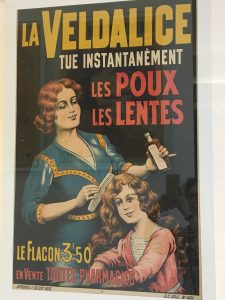Back in June there was a horrific incident in a New York City hospital. A former employee—an unstable man who had quit under pressure after accusations of sexual harassment and with a history that included an arrest for sex abuse—brought an AR-15 rifle to the hospital and opened fire on his former colleagues before setting himself on fire and shooting himself in the head.
It was a workplace nightmare on steroids! The doctor went postal*.
I had dinner with a doctor friend that night and he was horrified. Six people were injured and one was killed. The medical personnel did their best to manage the carnage, with heroic efforts to stabilize the wounded under fire. It is one of those inexplicable mass shootings that plague America. It’s senseless, brutal, violence.
But I’m not going to step up on any of the obvious soapboxes today. I’d like to talk about the language used in the reporting of the incident and how it perpetuates prejudice and stereotypes that are dated and sometimes disturbing.
When I went home that night I heard local TV news reporters describe the deceased as a “woman doctor.” You’d never hear a male medical practitioner described as a man doctor or as a male doctor. If he were black, he might be described as a “black doctor” or a male doctor might be described using his medical specialty—surgeon, general practitioner, pediatrician, etc. but the word doctor would not be modified by MALE or MAN, because the white, male, physician is still the norm.
Is its? Not in reality, but it lingers that way in our imaginations. This old stereotype is perpetuated by the use of: “female police officer” “Latino bank president” “Asian baseball player,” and other qualifiers that start with the assumption that they are describing someone outside the norm—outside the white, male norm. In the 21st Century it’s weird and dated.
According to The American Medical Association students enrolled in medical school were split 49.08/50.02 women/men in 2016. Later that year, a highly publicized study claimed that female doctors were superior to male doctors. There were all sorts of reasons listed—primarily related to women being “better listeners.” Early this year when I went looking for a new primary care physician, I wound up with a very nice and competent man, largely because the alternative offered—a woman—was so booked up I’d have had to wait an additional three months to see her.
The stereotyped language of “female doctor” has not caught up with reality.
*For blog followers outside the U.S.A. “going postal” means extreme rage/workplace violence and refers to a series of incidents starting with post office employee rampages of the 1980s.

I had no idea how to illustrate this post. But I found this photo of an advertising poster I took at the pharmacy museum in Porto, Portugal. We’ve come a long way? Or maybe not?





About halfway through this post I had a dreadful moment – I suddenly remembered that during the Offspring’s appendix incident, I’d been surprised to see…a male nurse…in the ward. And right there it hit me that I was as guilty of stereotyping people as everyone else. The fact that, until now, it was unconscious really isn’t an excuse. 🙁
I think a great deal of it is unconscious. I was reading a charming cozy the other day and started to note the description choices. White was the default so a character who was not white was singled out for a specific description as African American. I know I’ve done that. But why must I describe a character as black or Asian? It’s part of their description, but would I describe a white woman as white and her Asian friend as Asian? Or would one assume white??? A writer can get around it with specific descriptive text for ALL characters, but would that feel strange while reading? Wouldn’t it?
At this point, it’s simply something that I’m thinking about. Maybe I need to describe everyone with equal specificity? From the tall, blonde, Valgyrie to the statuesque African princess. When it comes to jobs and professional titles, I’m drawing a line. The doctor, the nurse, the teacher, the professor, the social worker, the NYPD detective, etc. I will consider all of them neutral and see what happens. I’m making myself think about this.. the Detective named Lisa would be assumed to be a woman, but with a name like Taylor or Terry or Randy etc. it might become funny.
Um… humor is always a good way to deal with confusion!